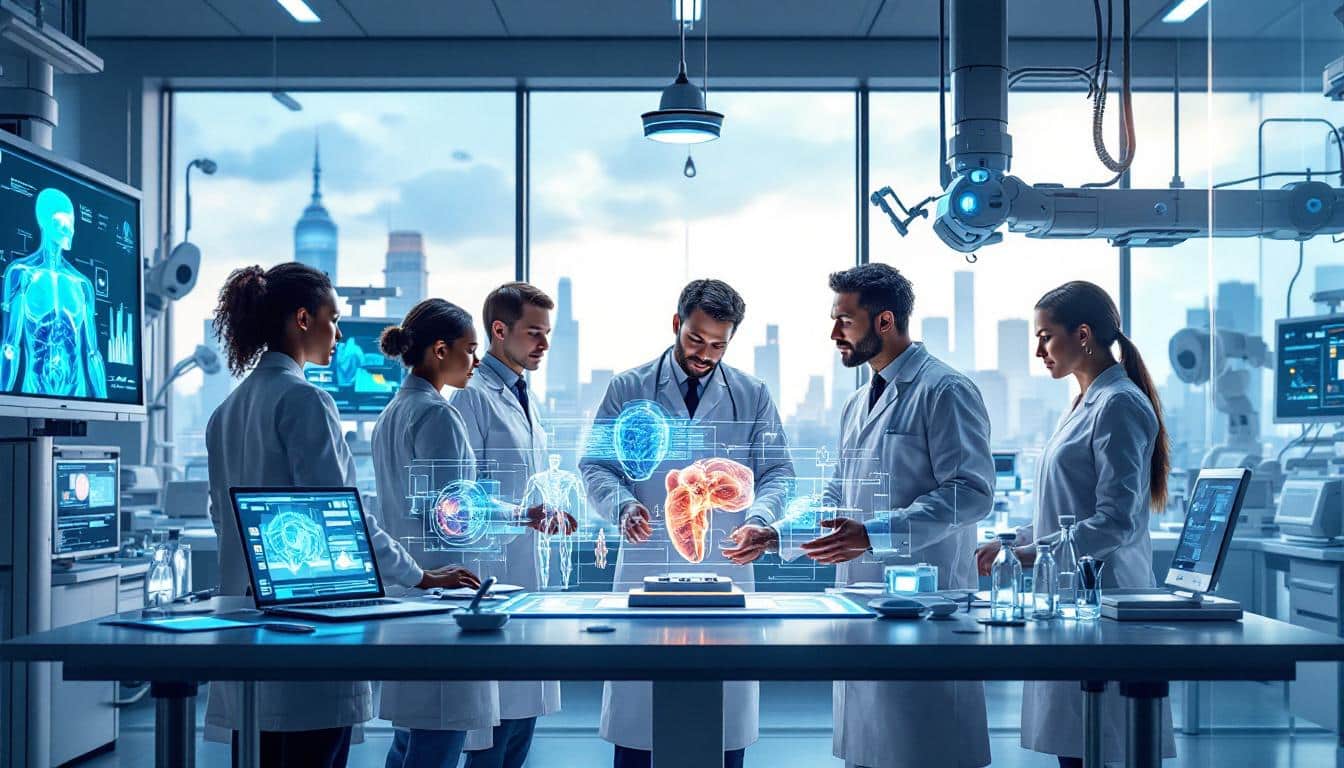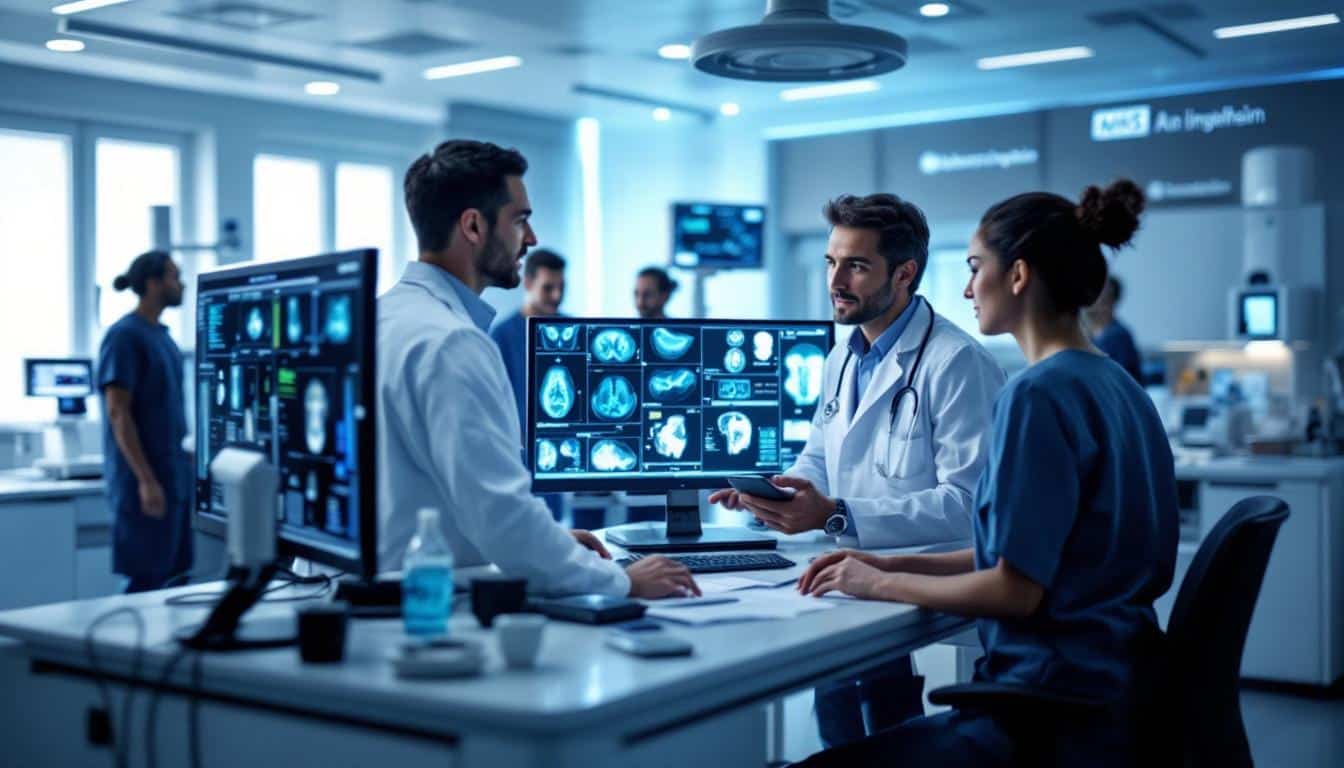Advances in the treatment of tremors have never been more crucial. In June and July, the Medicare agency of the United States is hosting essential public meetings. These gatherings will address innovative devices and clinical diagnostic testing.
These initiatives demonstrate a strong commitment to improving treatments for patients with Parkinson’s disease. The first meeting, scheduled for June 25, will focus on the endpoints of device trials for Parkinson’s disease. Subsequently, discussions will revolve around payment rates and codes for laboratory tests. These sessions provide a valuable platform for exchanging innovative ideas and aligning medical practices with the current needs of patients. The emphasis on innovative solutions promises to invigorate the healthcare sector and foster significant advancements in patient well-being.

What is the agenda for the upcoming cms meetings?
In 2025, the Centers for Medicare & Medicaid Services (CMS) is set to organize a series of crucial public meetings in June and July. These gatherings aim to address essential topics regarding tremor control devices and the reimbursement of laboratory tests. The first meeting, scheduled for June 25, will be dedicated to the endpoints for Parkinson’s device trials. This session will serve as a platform to discuss the evaluation criteria for medical devices aimed at alleviating Parkinson’s symptoms, ensuring that innovations meet the required standards for broad adoption.
The subsequent meetings will focus on reimbursement rates and codes for laboratory tests. These discussions are critical for determining how laboratories will be compensated for clinical diagnostics, directly impacting the economic viability of tests and accessibility for patients. These gatherings will provide an opportunity for healthcare professionals, medical device manufacturers, and stakeholders to work closely with the CMS to shape future policies.
Furthermore, these meetings fit into a broader context of medtech-en-france/”>medical innovations in France, where MedTech pioneers are working to develop innovative solutions. The active participation of international players underlines the importance of these discussions for the global healthcare landscape.
The importance of tremor control devices in Parkinson’s treatment
Parkinson’s is a neurodegenerative disease that affects millions of people worldwide. Tremor control devices play a crucial role in managing symptoms, thereby improving patients’ quality of life. These devices include advanced technologies such as deep brain stimulators, exoskeletons, and wearable motion tracking devices.
During the upcoming CMS meetings, the focus will be on the endpoints of clinical trials for these devices. Defining precise evaluation criteria is essential to ensure that new technologies provide real and measurable benefits to patients. For example, the effectiveness of deep brain stimulators will be evaluated not only on tremor reduction but also on mobility improvement and decrease of side effects.
By integrating innovations such as fee exemptions, manufacturers can make these devices more accessible while maintaining high quality. The adoption of new technologies requires close collaboration between developers, researchers, and health authorities to ensure that these solutions effectively and safely meet patients’ needs.
The impact of laboratory test reimbursement on the medical sector
Laboratory test reimbursement is a fundamental pillar of the healthcare system, ensuring that patients have access to accurate and affordable diagnostics. The upcoming CMS meetings will address the reimbursement rates and codes associated with this, key elements that directly influence the financial viability of laboratories and the quality of services offered.
Adequate reimbursement allows laboratories to maintain high standards in diagnostics while investing in advanced technologies. This results in early disease detection, thereby improving treatment success rates and patient satisfaction. For example, accurate laboratory tests for the diagnosis of Parkinson’s can allow for quicker and more targeted interventions, reducing long-term complications.
The decisions made during these meetings will have repercussions across the entire medical sector. Laboratories will need to adapt their practices to comply with new codes and reimbursement rates, which may include investments in cutting-edge equipment or ongoing staff training. Additionally, these changes could encourage innovation by facilitating the development of more effective and economically viable new tests.
To learn more about recent developments in this field, check out the weekly summary from February 2025, which provides a detailed perspective on current trends and future forecasts.
The stakes of clinical trials for Parkinson’s devices
Clinical trials are a crucial step in the development of new medical devices for the treatment of Parkinson’s. Defining appropriate endpoints is essential to evaluate the effectiveness and safety of these technologies. During the meeting on June 25, experts will discuss the specific criteria to be used to measure trial outcomes, ensuring that devices provide real added value to patients.
A major issue in clinical trials is ensuring adequate representation of various patient populations. This includes diversity in terms of age, gender, and stages of the disease, allowing for a comprehensive evaluation of devices in varied conditions. An inclusive approach enhances the reliability of results and facilitates the regulatory approval of devices.
Moreover, integrating innovative technologies, such as digital solutions, into clinical trials allows for more precise and real-time data collection. This not only improves the quality of the data collected but also speeds up the analysis, accelerating the validation process for devices.
Furthermore, collaboration between researchers, manufacturers, and health authorities is essential to overcoming challenges related to clinical trials. Open communication and transparency in the methodologies used strengthen stakeholder trust and facilitate the adoption of medical innovations once approved.
The influence of CMS decisions on the MedTech industry
The decisions made by the CMS during its meetings have a significant influence on the MedTech industry. By defining reimbursement criteria and associated codes, the CMS largely determines the economic incentives for medical device manufacturers and laboratories. A favorable reimbursement policy can stimulate innovation by providing an attractive market for new technologies.
MedTech companies must navigate this complex regulatory environment to ensure the commercial viability of their products. For instance, establishing competitive reimbursement rates will encourage manufacturers to invest in the development of more effective and accessible tremor control devices. Moreover, well-defined reimbursement codes simplify the billing process and reduce administrative barriers for laboratories.
Collaboration between industry stakeholders and the CMS is crucial to anticipate regulatory changes and adapt strategies accordingly. Actively participating in public discussions and providing empirical feedback enhances the relevance of decisions made and aligns the CMS’s objectives with the actual market needs.
Furthermore, CMS decisions can influence research and development trends. For example, a focus on more accurate diagnostics and personalized treatments may guide R&D efforts towards innovative technologies, such as genetic testing and connected devices. This dynamic fosters a vibrant MedTech ecosystem responsive to the changing needs of patients and healthcare professionals.
Opportunities and challenges for French MedTech companies
French MedTech companies are at a strategic crossroads with the upcoming CMS decisions. On one hand, opportunities for international collaboration and access to broad markets can propel these companies to new heights. On the other hand, they must overcome challenges related to regulatory compliance and global competitiveness.
Active participation of French companies in CMS discussions allows them to better understand requirements and adapt their products accordingly. For instance, by learning from the successful initiatives of MedTech pioneers in France, these companies can adopt innovative quality-focused practices, thereby strengthening their position in the international market.
Another major challenge is the need to quickly adapt to technological evolutions and new consumer expectations. Integrating digital solutions and adopting emerging technologies, such as artificial intelligence and connected devices, is essential to remain competitive. Additionally, government support and funding through initiatives such as fee exemptions can facilitate these transitions and encourage ongoing innovation.
French companies can also benefit from collaboration networks and strategic partnerships with international players. Participating in conferences, trade shows, and research consortiums allows for knowledge sharing, identifying co-development opportunities, and enhancing visibility on the global stage.
Finally, the ability to navigate the complex regulatory landscape defined by the CMS and other health authorities is essential. By investing in compliance and developing robust regulatory strategies, French companies can not only meet current requirements but also anticipate and prepare for future market evolutions.
Case study: The impact of regulation on a French startup
Consider the example of an innovative French startup in the field of tremor control devices. By actively participating in CMS discussions, it successfully adjusted its clinical endpoints to meet reimbursement requirements. This adaptation not only facilitated the approval of their device in the U.S. market but also enhanced their credibility with investors and international partners.
Moreover, through a proactive regulatory strategy, the startup managed to integrate advanced technologies while maintaining rigorous compliance, paving the way for fruitful collaborations and accelerated expansion. This success perfectly illustrates how a deep understanding of CMS decisions can turn regulatory challenges into growth opportunities.
Tremblements essentiels et maladie de Parkinson : comment faire la différence ?
— Femme actuelle (@femmeactuelle) March 31, 2024
➡️ https://t.co/0n6RzSuUD2 pic.twitter.com/lm4H0mrGHE
The upcoming CMS meetings represent a crucial step in the evolution of tremor treatments and laboratory test funding. By initially focusing on tremor control devices, the CMS demonstrates its commitment to improving the quality of life for patients with neurological diseases such as Parkinson’s disease. These devices, undergoing constant innovation, require rigorous evaluation criteria to ensure their effectiveness and safety during clinical trials.
The first meeting, scheduled for June 25, will emphasize the endpoints of clinical trials for Parkinson’s devices, a critical step towards standardizing evaluation methods and ensuring comparable and reliable results. This approach will facilitate the approval and integration of new technologies into the healthcare system, thus providing physicians and patients with more advanced and tailored therapeutic options.
The following meetings, focused on reimbursement rates and laboratory test codes, will address essential financial and administrative aspects for deploying these innovations. By clarifying reimbursement terms, the CMS aims to reduce economic barriers that could hinder the adoption of new medical technologies. Moreover, better structuring of test codes will facilitate billing and tracking costs associated with diagnostics, contributing to more efficient health resource management.
In summary, these meetings illustrate a clear intention from the CMS to support both technological innovation and the economic viability of new medical solutions. By harmonizing evaluation criteria for devices and optimizing reimbursement mechanisms, the CMS plays a decisive role in promoting a more dynamic healthcare system responsive to patient needs. This integrated approach is essential to catalyze medical progress and ensure that advancements effectively benefit the population.














